Pest Control in Las Vegas, NV
Effective Solutions for Pest Problems.
Fortified Pest Management
Let Us Assist with Your Pest Control Needs
Service Details
Pest Control in the Las Vegas Valley: A Comprehensive Guide
Las Vegas, Nevada, a city known for its dazzling lights and vibrant entertainment, also faces its fair share of pest control challenges. The desert climate, combined with a high population density, creates an environment conducive to various pests. Effective pest control is crucial for maintaining the health, safety, and comfort of homes and businesses in the Las Vegas Valley.Common Pests in Las Vegas
Las Vegas is home to a diverse range of pests, each requiring specific control strategies. Some of the most common include:* Cockroaches: These resilient insects thrive in warm, humid environments and are attracted to food and water sources. German cockroaches are particularly prevalent in homes and apartments.* Ants: Various ant species, such as Argentine ants and pavement ants, can invade homes in search of food. They often form large colonies and can be difficult to eradicate.* Scorpions: Arizona bark scorpions are common in the Las Vegas area and are known for their painful stings. They are nocturnal and often found hiding in dark, secluded areas.* Spiders: Black widows and brown recluse spiders are venomous spiders that can pose a threat to humans. Other common spiders include wolf spiders and house spiders.* Rodents: Mice and rats can enter homes and businesses in search of food and shelter. They can contaminate food, damage property, and transmit diseases.* Termites: These wood-destroying insects can cause significant structural damage to buildings. Subterranean termites are the most common type in Las Vegas.* Pigeons: These birds can create a nuisance by nesting on buildings and leaving droppings. Their droppings can damage property and pose health risks.Factors Contributing to Pest Problems in Las Vegas
Several factors contribute to the prevalence of pests in Las Vegas:* Desert Climate: The hot, dry climate provides ideal conditions for many pests, such as scorpions and certain types of ants.* Irrigation: Irrigation systems used to maintain lawns and gardens can create moist environments that attract pests.* Food and Water Sources: Food and water sources, such as garbage cans, pet food, and leaky pipes, can attract pests to homes and businesses.* Construction: New construction can disrupt pest habitats and force them to seek shelter in nearby buildings.* Travel: Tourism and travel can introduce new pests to the area.Pest Control Methods
Effective pest control involves a combination of preventative measures and treatment strategies. Some common methods include:* Inspection: A thorough inspection of the property is essential to identify the type of pest, the extent of the infestation, and potential entry points.* Identification: Correctly identifying the pest is crucial for selecting the most effective treatment method.* Sanitation: Eliminating food and water sources is essential for preventing pest infestations. This includes cleaning up spills, storing food in airtight containers, and repairing leaky pipes.* Exclusion: Sealing cracks and crevices, installing screens on windows and doors, and using door sweeps can prevent pests from entering buildings.* Trapping: Traps can be used to capture rodents, insects, and other pests.* Baiting: Baits contain a food attractant mixed with a pesticide. They are effective for controlling ants, cockroaches, and rodents.* Spraying: Pesticide sprays can be used to kill pests on contact or to create a barrier that prevents them from entering buildings.* Dusting: Insecticide dusts can be applied to cracks, crevices, and other areas where pests hide.* Fumigation: Fumigation involves sealing a building and releasing a fumigant to kill pests. This method is typically used for severe infestations.* Heat Treatment: Heat treatment involves raising the temperature of a building to a lethal level for pests. This method is effective for controlling bed bugs and other insects.Choosing a Pest Control Company
Selecting a reputable and experienced pest control company is crucial for effective pest management. Consider the following factors when choosing a company:* Licensing and Insurance: Ensure the company is licensed and insured to operate in Nevada.* Experience: Choose a company with a proven track record of success in controlling pests in the Las Vegas area.* Reputation: Check online reviews and ask for references to assess the company's reputation.* Services Offered: Ensure the company offers the services you need, such as general pest control, termite control, or scorpion control.* Treatment Methods: Inquire about the treatment methods the company uses and whether they are environmentally friendly.* Warranty: Ask about the company's warranty policy and what it covers.* Price: Obtain quotes from several companies and compare prices. However, don't choose a company solely based on price; consider the other factors as well.DIY Pest Control vs. Professional Services
While some homeowners may attempt DIY pest control, professional services offer several advantages:* Expertise: Pest control professionals have the knowledge and experience to identify pests, assess infestations, and develop effective treatment plans.* Access to Products: Professionals have access to a wider range of pesticides and equipment than homeowners.* Safety: Professionals are trained to handle pesticides safely and effectively, minimizing the risk to humans and pets.* Time Savings: Pest control can be time-consuming and labor-intensive. Hiring a professional can save you time and effort.* Effectiveness: Professional pest control services are often more effective than DIY methods, especially for severe infestations.Preventative Measures
Preventing pest infestations is always better than dealing with them after they occur. Here are some preventative measures you can take:* Seal Cracks and Crevices: Seal any cracks or crevices in your home's foundation, walls, and around pipes.* Install Screens: Install screens on windows and doors to prevent insects from entering.* Use Door Sweeps: Install door sweeps on exterior doors to prevent pests from crawling underneath.* Maintain Your Yard: Keep your yard clean and free of debris. Trim bushes and trees away from your home.* Store Food Properly: Store food in airtight containers to prevent pests from accessing it.* Clean Up Spills: Clean up spills immediately to prevent attracting pests.* Repair Leaky Pipes: Repair leaky pipes to eliminate water sources for pests.* Empty Garbage Cans Regularly: Empty garbage cans regularly and keep them tightly sealed.* Consider Professional Pest Control: Schedule regular pest control treatments to prevent infestations.The Future of Pest Control in Las Vegas
The pest control industry in Las Vegas is constantly evolving, with new technologies and treatment methods being developed. Some trends to watch include:* Integrated Pest Management (IPM): IPM is an approach to pest control that emphasizes prevention and uses pesticides only when necessary.* Green Pest Control: Green pest control methods use environmentally friendly products and techniques to control pests.* Smart Pest Control: Smart pest control uses sensors and data analytics to monitor pest activity and target treatments more effectively.* Drone Technology: Drones are being used to inspect buildings for pests and to apply pesticides in hard-to-reach areas.Conclusion
Pest control is an essential service in Las Vegas, Nevada. By understanding the common pests in the area, the factors that contribute to pest problems, and the available control methods, homeowners and businesses can protect their properties from infestations. Choosing a reputable pest control company and implementing preventative measures are crucial for maintaining a pest-free environment in the Las Vegas Valley.WHAT DO WE OFFER?
Comprehensive Pest Control
Fortified Pest Management provides comprehensive pest control solutions, safeguarding homes and businesses from unwanted intruders. We offer effective treatments and preventative strategies, ensuring a pest-free environment for our clients.

General Pest Control
Fortified Pest Management provides comprehensive general pest control services to protect your home or business from unwanted pests. Our experienced technicians use proven methods to identify, eliminate, and prevent pest infestations.
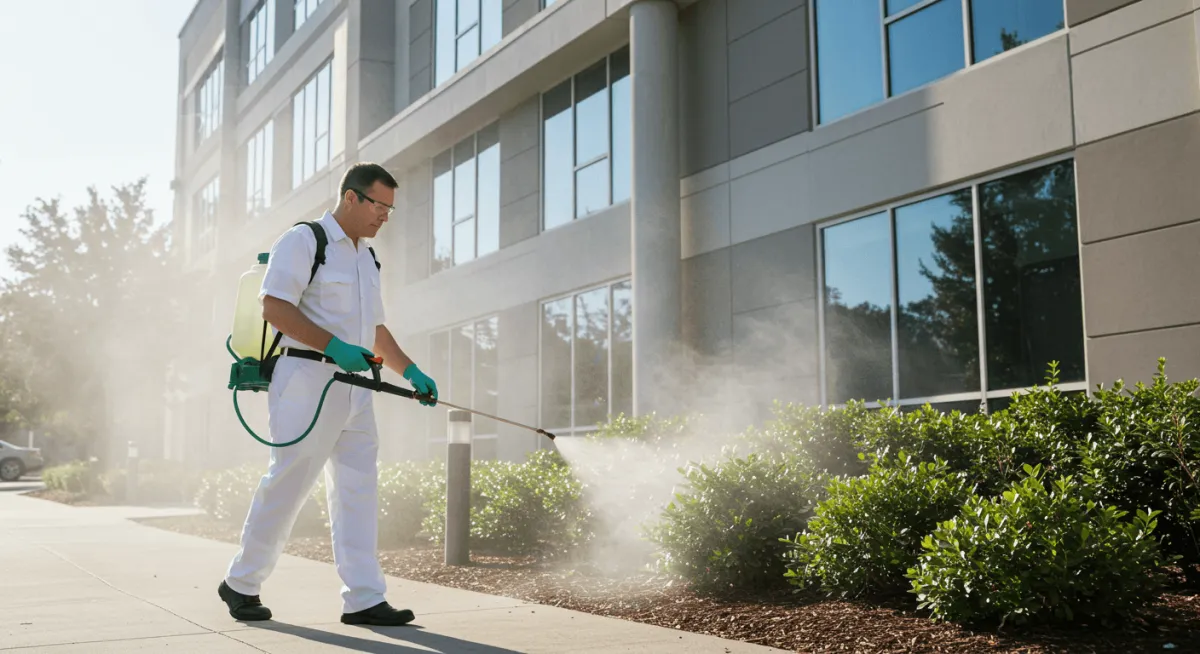
Commercial Pest Control
Fortified Pest Management delivers comprehensive commercial pest control solutions. Our services are designed to protect businesses from unwanted pests.
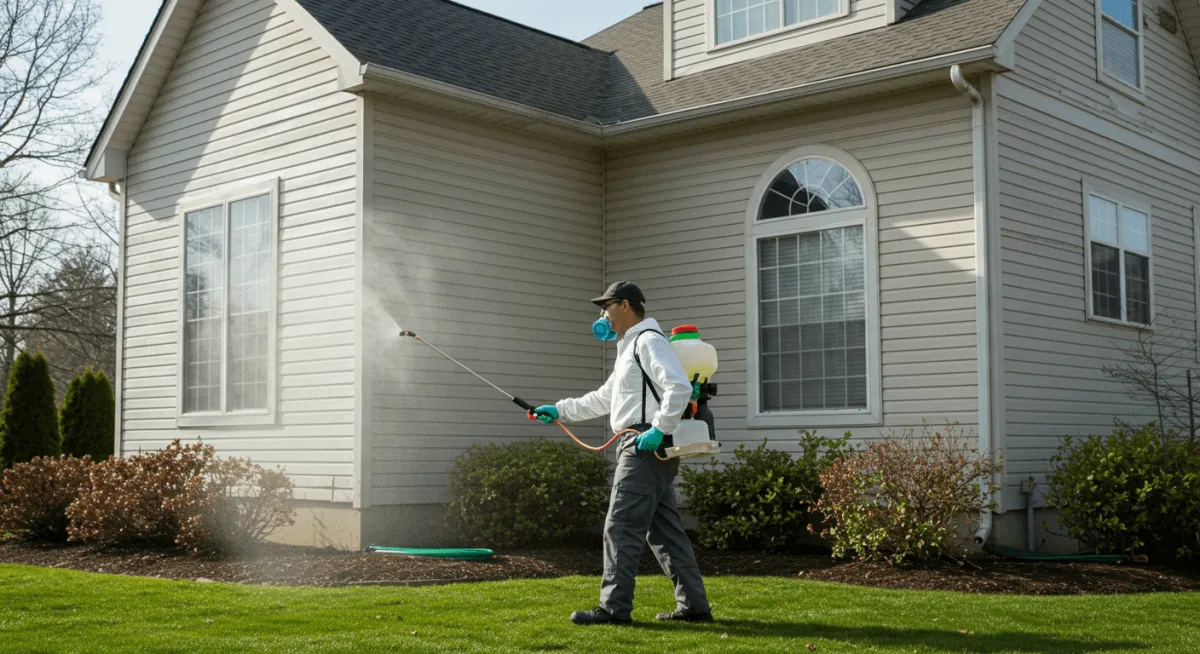
Scorpion Control
Fortified Pest Management provides comprehensive scorpion control services to help reduce scorpion populations around your property. Our experienced technicians use proven methods to target scorpions and create a more comfortable environment.
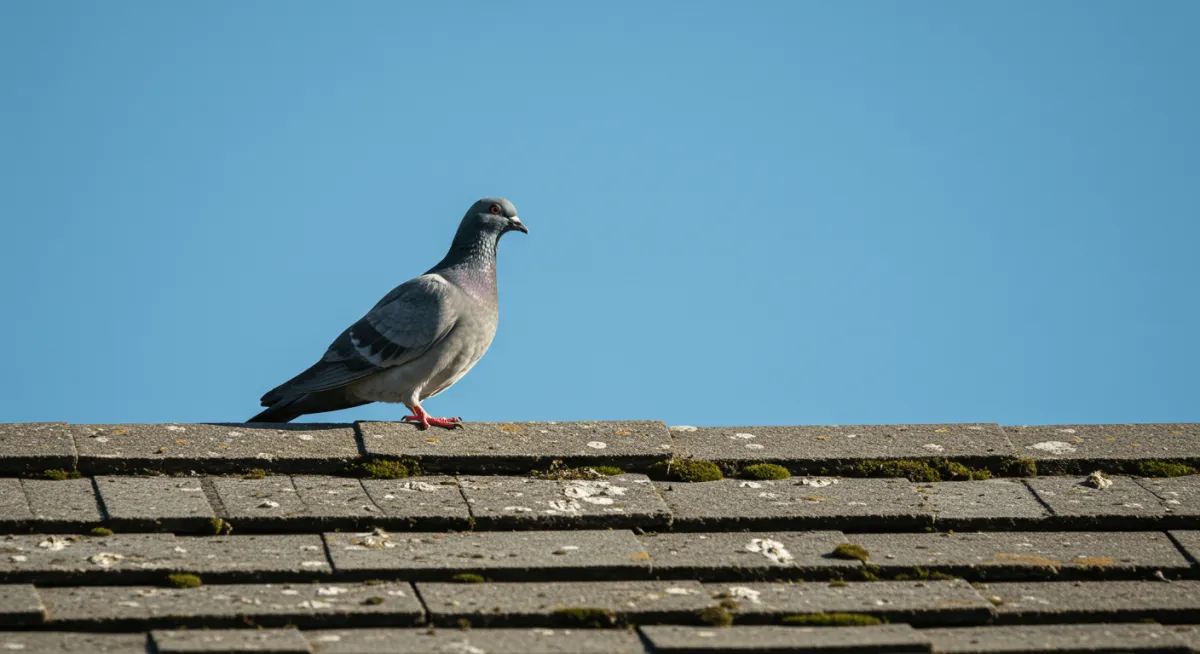
Pigeon Control
Fortified Pest Management provides comprehensive pigeon control services. Our experienced technicians use humane and effective methods to manage pigeon populations.
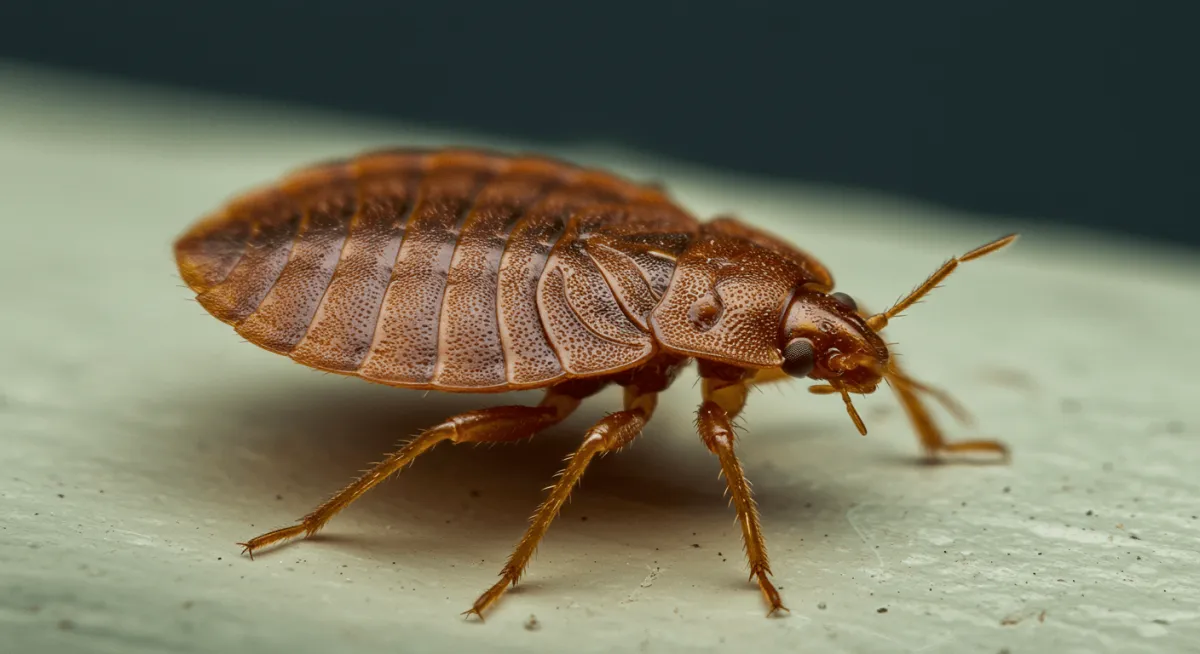
Bed Bug Control
Fortified Pest Management provides comprehensive bed bug control services. Our experienced technicians use proven methods to eliminate bed bugs from your property.
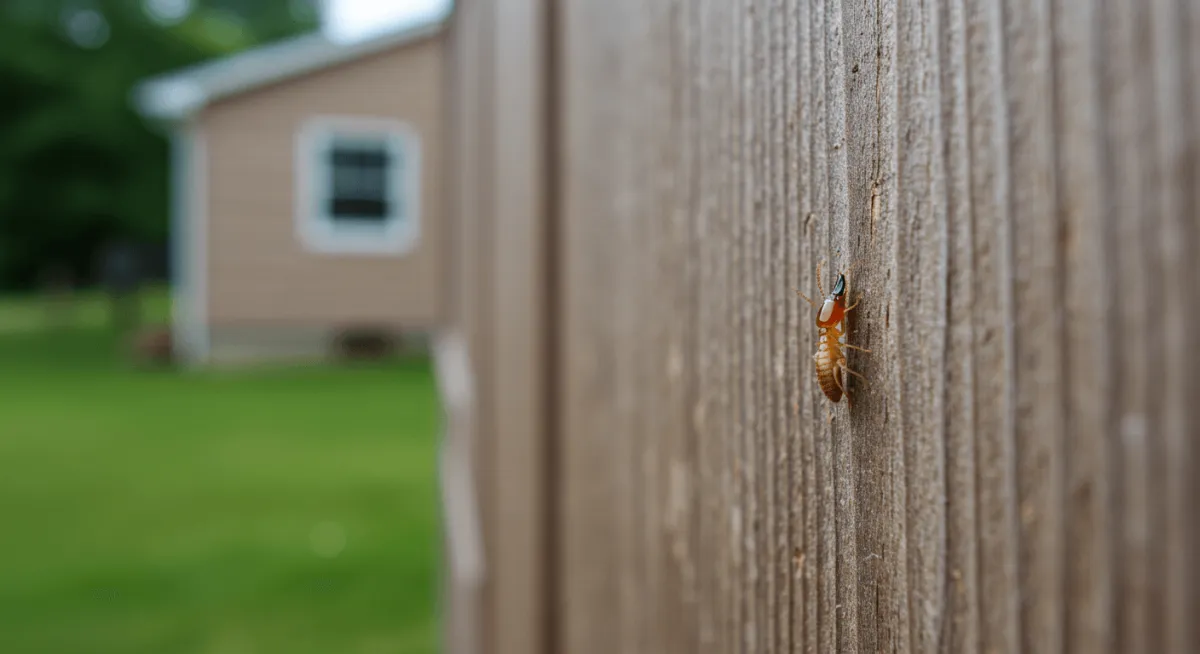
Termite Inspections
Fortified Pest Management provides thorough termite inspections to identify potential infestations. Our inspections offer valuable insights into the presence and extent of termite activity on your property.
Testimonials
What Client Our Says About Us
Excellent customer service and thorough inspection. I'm thankful I found this company. I got 3 quotes on a rodent problem at my house. Out of all the pros that showed up, Fortified sent David, who actually took his time, and he looked behind all the appliances to see how bad the situation was.. pretty gross unfortunately. There was no hard sell, and no fear baiting about purchasing their service. He and the office staff were patient with me and worked with me on options. Based on other quotes, I would say the price is fair but their service and how they treated me, was the best. Thankfully the rodent is now gone.
I have been a satisfied customer of Fortified for at least 2 years. Every representative has been polite, courteous, professional and methodical. They have provided a excellent service and I highly recommend them!
Michael was so professional and patient with my many questions. After going through a couple different pest companies and having the same problem come back again and again I finally found fortified. My kids are bite free and I didnt pay an arm and a leg for a heat treatment. I am truly grateful Thanks michael!
Service Locations
Hours:
Sunday: Open 24 Hours
Monday: Open 24 Hours
Tuesday: Open 24 Hours
Wednesday: Open 24 Hours
Thursday: Open 24 Hours
Friday: Open 24 Hours
Saturday: Open 24 Hours
BUSINESS INFO
6165 Harrison Dr. Suite 4 Las Vegas, NV 89120
702-766-9228
https://www.fortifiedpestmanagement.com
